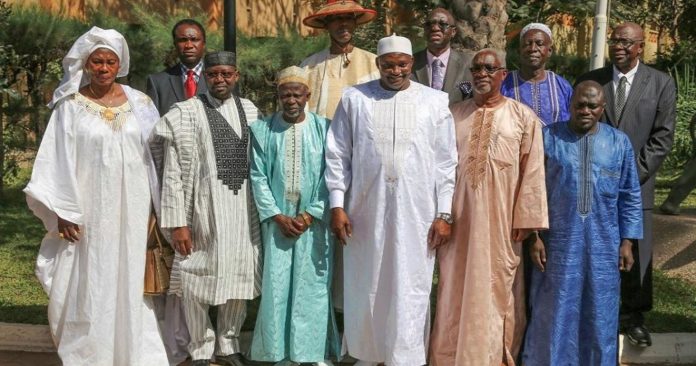The article critique the existing paradigm of state, society and power by recounting the fallacy of binary oppositions such as state vs society and public vs private. The reason for is that the concepts used in opposition are not actually exercised in such an antithetical form. Authority, for instance, is not exclusive to government, nor are the individuals subject to it. Although the government and society differ by nature, people take part in government’s operations in various forms of alliance, depending on their varying strategies.
The problematics of government, in concept terms, involves political rationalities and governmental technologies enhanced by non-governmental forces in a particular composition. The argument here is aiming to move beyond the fixed definition of ‘’state’’, since non-governmental actors play key roles in a democracy, so true of The Gambia.
The state is merely an abstraction and is not as operable as some people think. For instance, it is government that makes various forms of alliances possible in terms of foreign policy. In this respect, one arrives at the conclusion that the state, society and power relations is the problematics of government, which can be analyzed into political rationalities & governmental technologies.
On the one hand, political rationalitiesinclude conceptualization of power exercise in the changing discursive fields – moral justification in the manner power is exercised by diverse authorities, forms, objects and limits of politics. The recent missile strikes on Syria by the U.S, Britain and France came to mind. Or perhaps the intervention of Senegalese and ECOWAS forces in The Gambia at the height of the political impasse – a scenario ‘Jammeh’ and his APRC crowd cried foul as a ‘domestic issue’ needing no foreign intervention.
Governmental technologieson the other, include a National Development Plan, calculations, technics, procedures, documents & programs designed by the administration to realize a vision. The discussion of governmental technologies focuses on ‘power’ in relation to the diverse forces taking part in operating that element. Power is not necessarily a tool for any one single forces of technologies to operate, rather, it is the effect of the composition of these forces in the way they complement & react to each other. The argument here, simply, implies that power is not to be centralized or monopolized – but shared.
The state, in of itself can be classified as a discursive codification of government and as a way of setting political sphere apart from the non-political. The ‘state’ is also the framework that defines relations of the government to other states in the international domain through such complex lenses of diplomacy and military force; the operability of which resides in the hands of government, nationally but also trans-nationally.
The problematics of government, simply means that programs are developed upon the problematization of government, which requires a certain knowledge of the problem needing attention. There is a simple saying that ‘before embarking on fresh steps, one needs reflect on journey-past’. Hmm the ‘wolof’ translate sic. Put it this way, when the issue came up whether he was looking to remarry, an old chap once said to me he, first, has to do some soul-searching reflect on his past mistakes, arrogance in check, learn to compromise in relationships, develop ‘humility’ and ‘faith’ before embarking on fresh steps; He meant taking a new wife.
The same could be said of government in the manner it goes about creating & conducting an accountable machinery, responsibly designed, sustainable in deed. An advice for the ‘Banjul government’ – Murders must serve a prison sentence, and are all those found to exploit and steal tax payer’s money over the past so many years. Let ‘Truth’, first, establish & rain down before we may shake hands on ‘reconciliation’ – pardons can wait.
There appears to be an argument out there gathering storm in liberal circles that entities like state and society are separate, ever adding mystery to a somewhat settled ideological quarrel. I urge Gambians to reflect on history see how the ‘Welfare State’ transformed Britain & Western Europe after WW2 – in the context of problematics of government. The Gambia, today, should be looking towards the creation of a welfare state where those at the very bottom of the social ladder receive monthly payments, and that the elderly or retirees paid stipends. And at a time of high unemployment & struggle, there should have been workshops all across the country on ‘public ownership’, ‘environmental economics’, ‘Access to quality & affordable housing’, ‘Equitable health-Care’, ‘Strategies to revive local manufacturing + Processing’ and so on in how can we develop and strengthen our country. The various governors need to stand counted better represent local communities within boundary limits. As for the everyday Gambian, we should remind ourselves that it is incumbent upon government to deliver B.I.G whilst creating an enabling environment and the necessary conditions for every citizen to succeed & thrive. That is what a true democracy amounts to – all under the banner of the ‘Social Contract’.
Gibril Saine Twitter: @gibbysaine




